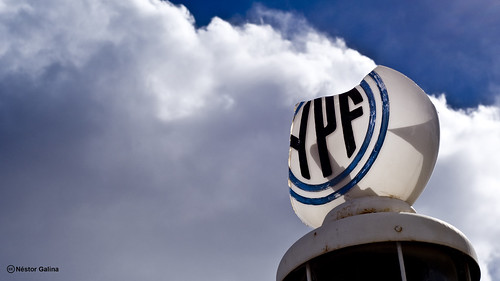
Mexican President Felipe Calderon expressed his displeasure over the Argentine government’s decision this week to seize 51% of oil company oil firm YPF from Spain’s Repsol.
“No one in their right mind would invest in a country that expropriates investments,” Calderon said yesterday.
“This is absolutely a not very responsible measure,” added Calderon over the decision that will likely affect Mexico’s finances. (Mexico's state oil monopoly Pemex holds a 10% stake in Repsol).
Argentina’s president Cristina Fernandez de Kirchner announced the takeover of YPF on Monday claiming that low production that has forced the country to spend heavily on imported energy.
"We are the only country in Latin America, and I would say in practically the entire world, that doesn't manage its own natural resources," Fernandez said in a national speech.
Aside from Calderon and Peruvian economy minister Luis Miguel Castilla (who called Argentina’s actions “insane politics”), other Latin American leaders were not as critical.
“I’m not pleased with the response from wealthy Europe said Uruguayan president José Mujica who also clamed that Argentina’s 1992 decision to privatize YPF was “an error”. Venezuelan Foreign Affairs minister Nicolas Maduro said that his country’s government “welcomes and supports” the YPF takeover.
Others like Bolivian President Evo Morales distanced himself by noting the decision is “an issue between Argentina and Spain, of Repsol as a company and Argentina”.
U.S. Secretary of State Hillary Clinton said, “Decisions taken by the different countries are decisions they have to justify and will have to live with them.” But she added, “Models that include competition and market access have been the most successful around the world.”
“I must express my profound unease. It's a negative decision for everyone," Spanish Prime Minister Mariano Rajoy said on a visit to Mexico. His concerns were shared by other Spanish government officials like Foreign Minister Jose Manuel Garcia-Margallo claiming that Argentina had "shot itself in the foot."
Other European entities have given their diplomatic support to Spain including the European Commission, which “indefinitely postponed” an E.U.- Argentina meeting regarding bilateral trade.
British Foreign Secretary William Hague warned that Argentina’s actions “are damaging to business interests and will undermine Argentina's economy by reducing its attractiveness to international investors.” (Argentina and Britain are engaged in a war-of-words over the Falklands including concerns over offshore oil exploration near the disputed islands).
The president of Repsol claimed, “this battle is not over,” yet shares in the company tumbled by 7.5% in trading on Tuesday.
A Bloomberg article warned that Argentina’s president is “taking a page from (Venezuelan president) Hugo Chavez’s playbook” with the takeover of YPF. Yet one analyst interviewed in that article highlighted that the Argentine and Venezuelan economies are too distinct for the same types of economic policies:
“ (…) differences between the Argentine and Venezuelan economies mean Fernandez wouldn’t be able to expand her government’s role as much as Chavez has in Venezuela, where 90 percent of exports are oil and energy, said Igor Arsenin, head of Latin America strategy at Credit Suisse Group AG in New York.Image Source – Flickr via nestor galina (CC BY 2.0)
“Argentina is a much more diversified economy,” Arsenin said. “Much of their foreign exchange revenues are coming from the agricultural sector and clearly you can’t nationalize that.”
“In Venezuela, “they’re able to run the state based on purely oil revenues and let the rest of the economy stagnate,” Arsenin said.
Online Sources – El Comercio, MSNBC, BBC News, Bloomberg, Expatica Spain, Reuters, Huffington Post, Mercopress, Bernama, The Latin Americanist
No comments:
Post a Comment